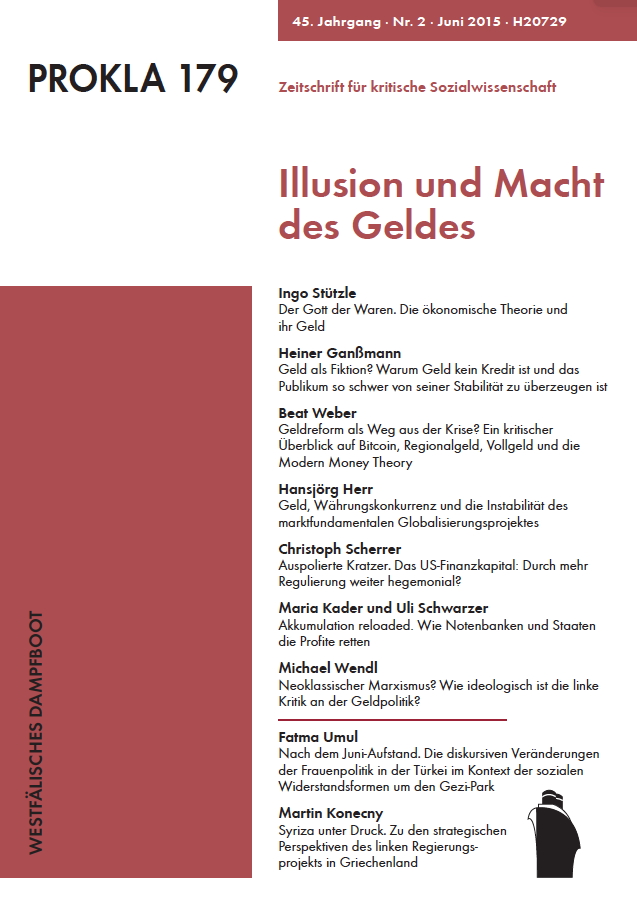Nach dem Juni-Aufstand
Die diskursiven Veränderungen der Frauenpolitik in der Türkei im Kontext der sozialen Widerstandsformen um den Gezi-Park
DOI:
https://doi.org/10.32387/prokla.v45i179.223Keywords:
Frauenpolitik, Türkei, Feminismus, ProtestbewegungAbstract
The article focuses on the participation of women and the feminist critique of the AKP government. The aim is to provide a differentiated analysis of Gezi protests with a view of the backgrounds and the discursive developments up to the time of the outbreak of the protests and thereby contributing to the understanding of this social movement. The June uprising in Turkey can be regarded as an outcry against a paradigm shift that has established itself over the last 12 years due to the reconstruction of the legislation and the reorganization of the state apparatus. To closer examine the position of women, the article analyze the gender relations in Turkey and the paradigm shift represented in women’s policy. Thus the relationship between the nation and the nuclear family concept as a discursive place where power structures are reproduced will be highlighted. Furthermore, seven interviews with women were analyzed to discover which aspects of the women’s policy of the AKP the protagonists criticize. These aspects were contrasted with the discursive developments in women’s policy which enabled the reconstruction of reasons for the outbreak of the protests in June 2013.





